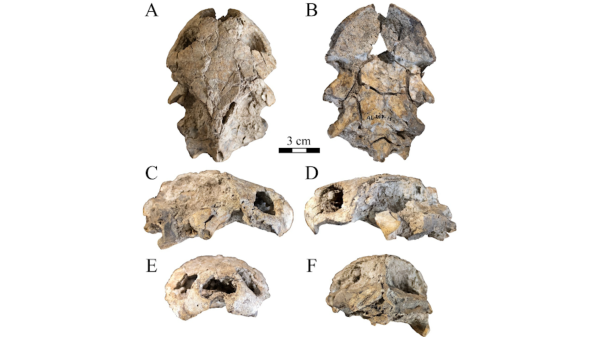ASU startup DNA Biotronix wins grand prize in Skysong Innovations Startup Challenge

Schematic representation of a DNA-based sensor. DNA bridges two metallic carbon nanotubes, and the electrical resistance changes when the target molecules (silver) bind to the DNA. Photo courtesy DNA Biotronix
An Arizona State University startup is one step closer to developing tiny, noninvasive wearable devices to measure real-time glucose levels in sweat after winning Skysong Innovations’ 2023 Startup Challenge.
DNA Biotronix won the challenge and plans to use the $50,000 in seed investment to advance novel, wearable, nanoelectronic biosensors for noninvasive, real-time monitoring of glucose and other biomarkers in sweat at the molecular level.
“People have been able to measure a single molecule for about 20 years now, but that has never really translated into real-world applications,” said Josh Hihath, principal investigator of DNA Biotronix and director and professor at the Center for Bioelectronics and Biosensors. “But now we have recently developed a way to integrate single molecules into electronics more reliably.”
The company utilizes single DNA molecules that behave like transistors in tiny electronic circuits created to read an individual’s vitals simply and more accurately. The company plans to use the prize money to transform the transistor technology they developed into a noninvasive wearable device that can consistently detect glucose levels for people with diabetes with greater accuracy than current glucose sensors that measure glucose levels in the interstitial fluid.
“Our vision of this is to take advantage of the unique chemistry and electrical properties of DNA to develop completely new ways of biosensing,” Hihath said. “The primary problem we are targeting right now is diabetes.”
More than 37 million Americans live with diabetes, and it is estimated that another 1.4 million Americans are diagnosed with diabetes annually, according to the American Diabetes Association.
Skysong Innovations holds its Startup Challenge pitch event annually to give new ASU faculty startups launched during the prior fiscal year the opportunity to showcase innovative advancements they are making in their specified fields. An expert panel of investors and other external judges selected five companies to advance from the first round of evaluation into the second and final round for this year’s challenge, with each of the startups receiving a $25,000 seed investment. DNA Biotronix received an additional $25,000 in seed investment as the grand prize winner.
“The work being done at DNA Biotronix stood out to to the judges because the application of their technology can seriously improve the lives of millions,” said Charlie Lewis, vice president of venture development and physical sciences for Skysong Innovations. “Each startup that participated in this year’s challenge is working to develop groundbreaking technologies, and the team at DNA Biotronix earned this achievement."
Skysong Innovations, ASU’s exclusive technology transfer and intellectual property management organization, helps translate research into impact by protecting intellectual property developed in ASU labs and negotiating licensing deals with commercial partners who advance the technologies and develop solutions for society.
The following companies were finalists alongside DNA Biotronix in the 2023 startup challenge and each received a $25,000 convertible note:
- Business Analytic Technologies is working to develop a novel platform based on symbolic AI to identify black swan events. Paulo Shakarian, associate professor in the School of Computing and Augmented Intelligence and Center for Cyber Security and Trusted Foundations, is managing director of the company.
- Omios Biologics develops novel engineered viral technologies to fight cancer. Bertram Jacobs, professor of virology in the School of Life Sciences and member of the Biodesign Center for Immunotherapy, Vaccines and Virotherapy, is the principal investigator for the technology.
- Sensorna is working on rapid development of first-in-class RNA drugs that destroy cancers. Faculty involved with this company include Albert Cheng, associate professor in the School of Biological and Health Systems Engineering.
- Spatomics is developing affordable and higher-performing instrumentation and reagents for automated tissue biomarker analysis. Faculty involved with this company include Jia Guo, associate professor in the School of Molecular Sciences.
Written by Richard Canas
More Science and technology

New research by ASU paleoanthropologists: 2 ancient human ancestors were neighbors
In 2009, scientists found eight bones from the foot of an ancient human ancestor within layers of million-year-old sediment in…

When facts aren’t enough
In the age of viral headlines and endless scrolling, misinformation travels faster than the truth. Even careful readers can be…

Scientists discover new turtle that lived alongside 'Lucy' species
Shell pieces and a rare skull of a 3-million-year-old freshwater turtle are providing scientists at Arizona State University with…